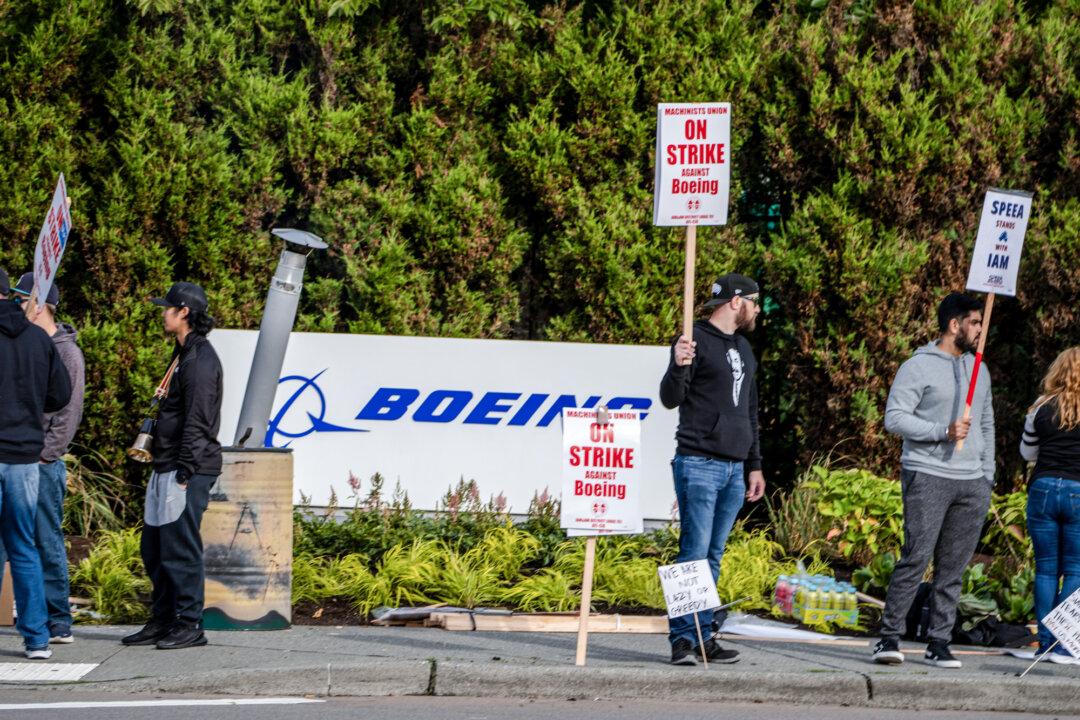A top Boeing executive has announced that the plane maker is freezing hiring, halting nonessential spending, and considering layoffs as it faces a prolonged strike by thousands of machinists.
The measures are intended to conserve cash and protect the company’s long-term operations during the strike, according to an internal memo from Brian West, Boeing executive vice president and chief financial officer. He said the company is going through a “difficult period.”





